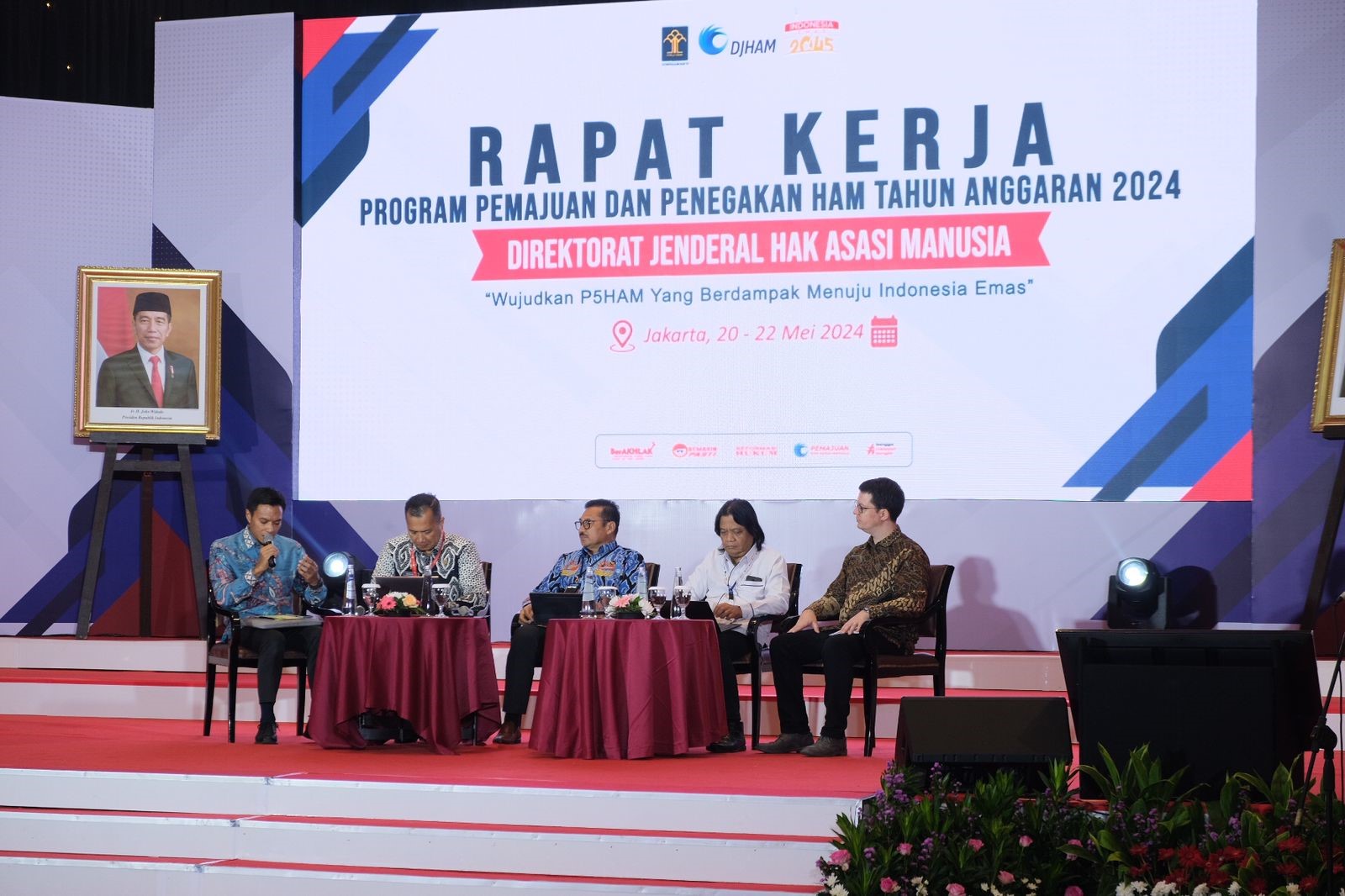Human Rights
Business and Human Rights: An Important Milestone for Human Rights in Indonesia

The Indonesian government is moving forward in strengthening the State’s duty to promote, protect, and enforce human rights. A national coordination meeting on May 20th, 2024 in Hotel Borobudur, Jakarta, marked the launch of the “Implementing Guidelines for the Regional Task Force of Business and Human Rights”. The Minister of Law and Human Rights, Yasonna H. Laoly, emphasized the importance of incorporating human rights principles into the Indonesian government’s Long Term National Plan for 2025-2029, as part of the effort to embed the State’s duty to protect human rights into development planning.
As one of the pioneers within ASEAN, Indonesia adopted the National Strategy for Business and Human Rights through Presidential Regulation No. 60/2023 in September 2023, officially initiating the ratification of the United Nations Guiding Principles on Business and Human Rights. This significant effort represents a serious response from the Indonesian government to the pressing need to safeguard human rights in the workplace. FNF Indonesia supported this process from an early stage onwards: Since 2021, the preparation of the National Strategy for Business and Human Rights has required consultations with stakeholders, including business actors and NGOs. To facilitate this, FNF Indonesia supported the Human Rights Division within the Ministry of Law and Human Rights through workshops, focused group discussions and provincial visits to involve local governments and business communities in the dialogue and to prepare them to assume their responsibilities.
Following the presidential regulation, the Ministry of Law and Human Rights has begun establishing national and regional task forces across Indonesia. Harniati, the Director of Human Rights Cooperation at the ministry, disclosed that the national task force, chaired by the minister, will collaborate with relevant ministries and agencies. Its primary objective is to enforce laws within business settings, ensuring accountability and compliance. Harniati emphasized the importance of synchronizing national and regional efforts to bridge policy gaps and to provide holistic human rights protection for workers and communities alike. Furthermore, regional-level task forces, overseen by provincial governors, will involve regional offices and NGOs to comprehensively address local concerns.
At a panel together with the Director General of Human Rights, the Head of Legal Affairs from the Witness and Victims Protection Agency, and the Expert Staff of the Coordinating Minister of Maritime Affairs and Investment, Dr. Stefan Diederich, Project Director of FNF Indonesia, emphasized the need for international cooperation and reiterated FNF’s willingness to further support the Ministry of Law and Human Rights in this important policy field.

